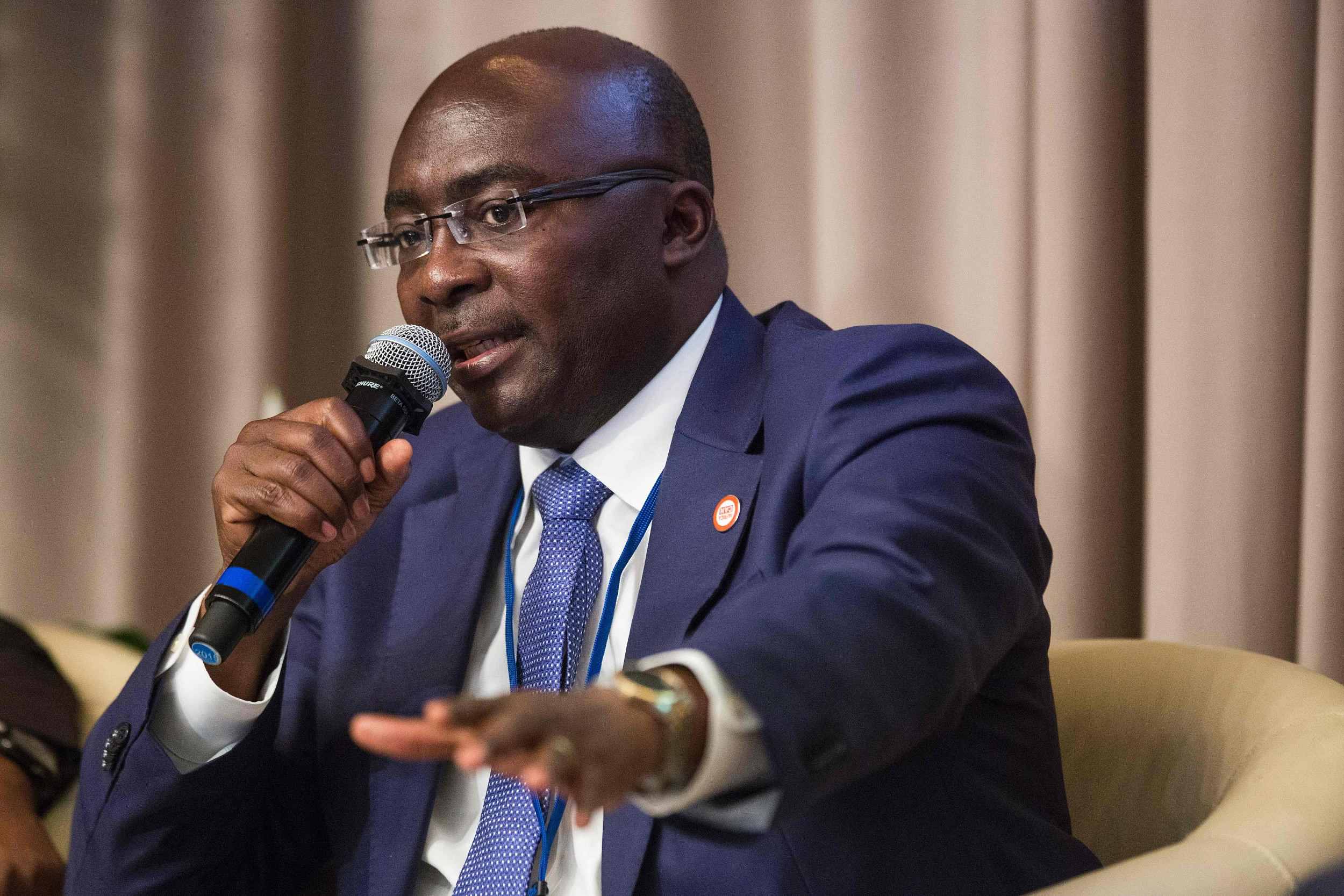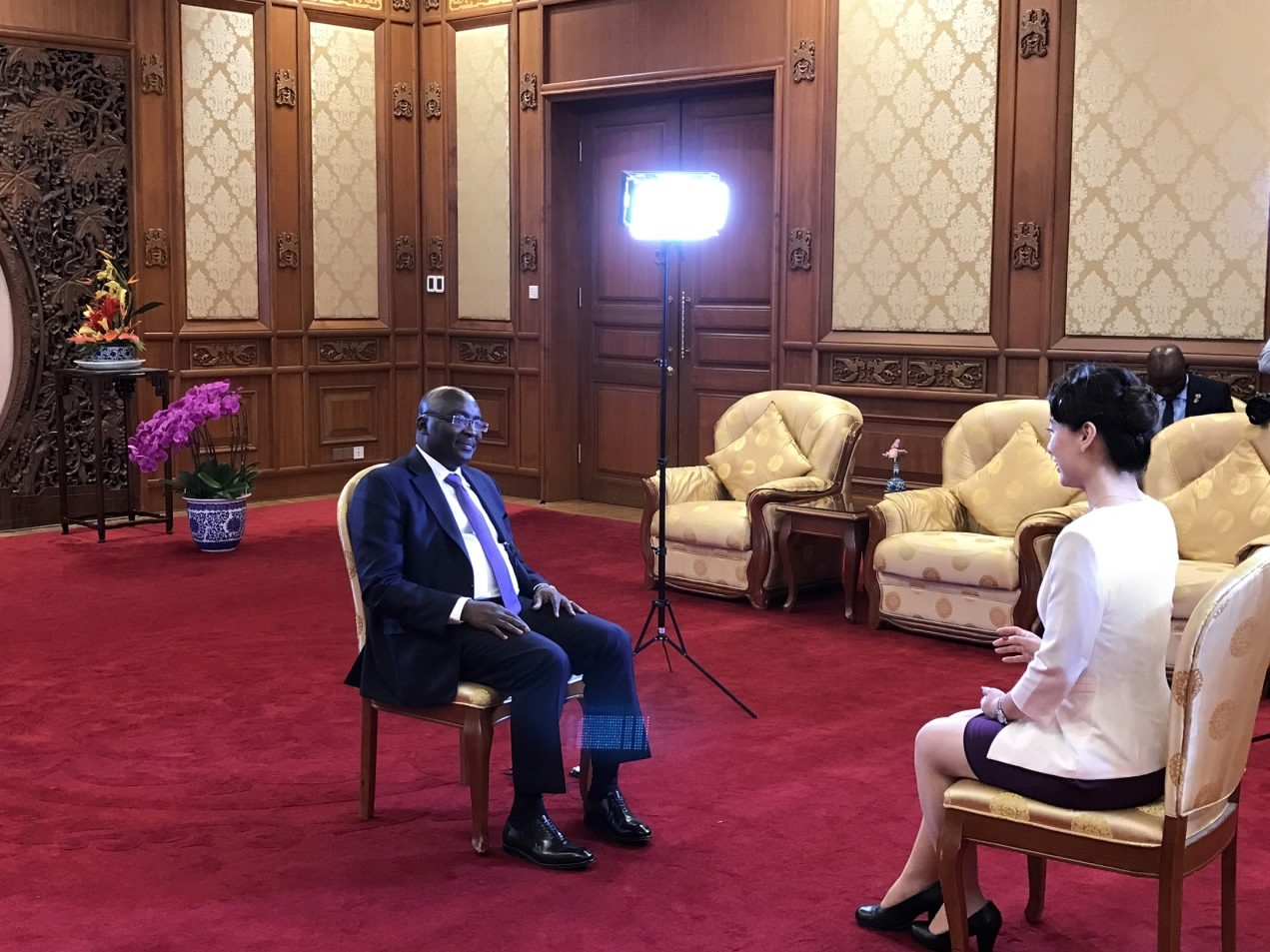By CGTN’s Su Yuting
Ghana's Vice President Mahamudu Bawumia is currently on an official visit to China, and has held talks with Chairman of the National Committee of the Chinese People's Political Consultative Conference (CPPCC) Yu Zhengsheng, and Vice President Li Yuanchao.
CGTN’s foreign affairs reporter Su Yuting had the chance to sit down with Vice President Bawumia to hear his insights on China-Ghana relations.

Ghana's Vice President Mahamudu Bawumia speaks during a panel discussion on the State of the Africa Region at the World Bank IMF Spring Meetings. /VCG Photo
Bawumia's visit is the first official one by the Ghanaian leadership since the new government was formed at the beginning of this year.
Bawumia said he has led a very big and very important delegation, adding “this visit is to help cement friendship between the people of Ghana and China. Our new government in Ghana, the President of Ghana was elected six months ago. He has very clear vision for the economy. And we want to deepen the relations with our Chinese friends. And with that economic transformation in Ghana, we want our partners and friends to be supportive to that vision."
Ghana is among the first group of Sub-Saharan African countries that established diplomatic relations with China. Bawumia talked about his view on bilateral ties:
"Ghana and China have had very close diplomatic relations since the 1960s. Today, China is Ghana's largest trading partner in terms of trade and foreign direct investment. We are hoping for a closer relationship with China and China's support for our economic transformation program," said Bawumia.

Mahamudu Bawumia is holding a conversation with CGTN's foreign affairs reporter Su Yuting. /CGTN Photo
Bawumia added, “The Belt and Road Initiative that President Xi Jinping has brought onto the global scene indicated a new type of globalization, and I think China is taking the leadership in this area. And Ghana wants to be part of this initiative. We have an initiative called "One District One Factory", so that every district can think about the adding value, this is a private-sector-driven initiative. So we want private sector to think about various factories that they can set the raw materials in the particular district to add value to them and find the market for them. And we believe being in the part of the Belt and Road Initiative, we will enhance the productive capacity. "










